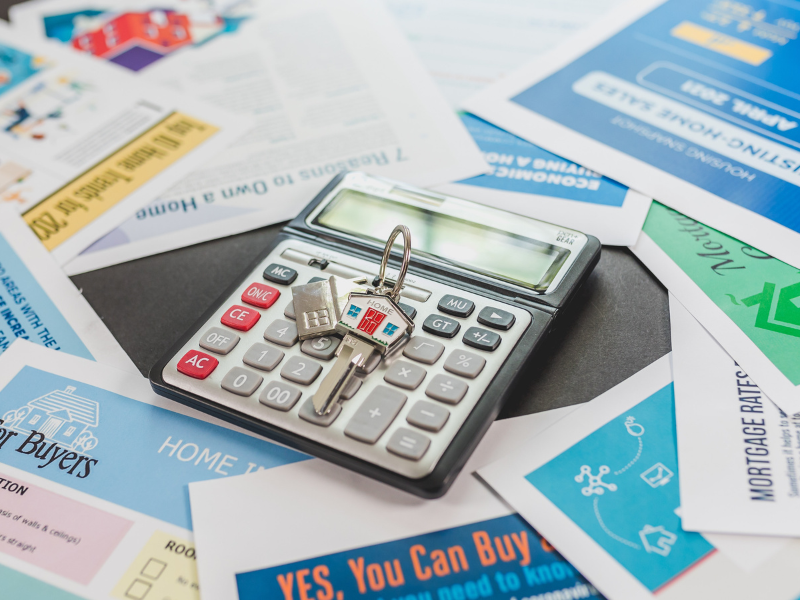What Are the Pros and Cons of a Home Equity Loan?
Are you considering a home equity loan? Want to know the pros and cons of a home equity loan before making a big financial decision?
This type of loan allows you to tap into the equity you’ve built in your home and use it for various projects or expenses. But before you make a decision, it’s important to weigh the pros and cons.
On the positive side, a home equity loan provides access to a substantial amount of money, often at a lower interest rate than other borrowing options. It offers flexibility, with options for either a lump sum or a line of credit. However, there are risks involved, such as the potential loss of your home if you can’t make payments.
This article will discuss the pros and cons of a home equity loan so you make the right financial decision. By exploring the advantages and disadvantages of a home equity loan, you’ll gain the necessary insights to determine if it aligns with your financial goals and needs.
What is a Home Equity Loan?
A home equity loan is a loan that takes advantage of the equity in your home. You can borrow money based on your home’s value, over any mortgage obligations. It is considered a second mortgage, the first being the loan you secured to purchase your home in the first place.
There are two options for borrowing money with a home equity loan:
- Like any other loan, you can elect to receive the entire amount of your home’s equity upfront. You would then repay the loan over time in smaller installments. This option features a fixed-interest loan for the life of the loan. You pay interest on the entire amount.
- The more flexible option is called a home equity line of credit, or HELOC. With this loan, you are approved for a maximum amount, depending on your home’s equity, and simply borrow what you need from that amount. This leaves money left over in the loan, which you can borrow in the future when needs arise. Interest rates are variable, and you only pay interest on the amount you borrow.
You May Also Like: Your All-In-One Guide to Navigating Mortgage Loans
Loan to Value Calculator
A loan-to-value calculator can help you determine if there is enough value, or equity, in your home above your mortgage obligations to secure a loan against it. It adds the outstanding balance of your first mortgage and any other liens on the property, such as tax liens. It then weighs this amount against the value of your home, which could be either its market value or current appraised value. This will give you your loan-to-value ratio. There are many versions of this calculator available online to do these calculations for you.
You May Also Like: What Is a Reverse Mortgage? Explained
Pros of a Home Equity Loan
Home equity loans provide access to large amounts of money, depending on how much value, or equity, your home has built up. Your first mortgage has limits, but as long as your home has built plenty of equity above that loan, you can borrow more money than you could have with your first mortgage.
One of its pros is that a home equity loan is easier to qualify for than other types of loans. Your home is used as security for the loan, so it’s easier to qualify than when you were initially buying the home.
A home equity line of credit allows you to borrow multiple times from the same maximum loan. This can help when sudden expenses show up.
A line of credit also allows you to make smaller repayments during the early phase of repaying the loan. This is called a draw period and might last about 10 years.
Home equity loans do not limit you on what you can use them for. As long as your property is worth more than you owe on it, the money is yours to do with anything you like, such as home improvement, college tuition, starting a business, and other costs.
These loans carry a lower interest rate than other methods of borrowing money, such as credit cards. This keeps the cost of the loan low.
Cons of a Home Equity Loan
The main risk with home equity loans is the fact that you are using your home to secure the loan. This means that if you cannot keep up with the payments, you could risk losing your home. Defaulting on the loan will entitle the lender to foreclose on your home and sell it to recover the rest of the loan. If you have other debts, such as credit cards, you will want to consider whether you will be able to add another one.
A home equity line of credit is very flexible, but your lender could freeze it before you can use the money. These freezes are often sudden and unexpected.
During the draw period of a home equity line of credit, payments are smaller, but once that period ends, payments will rise to adequately pay off the loan.
Though low-interest rates can keep the cost of securing a home equity loan low, closing costs are often higher, which can offset the low rates and even increase the cost of the loan.
Related Articles:
What Is Credit Card Debt Forgiveness? Is It Right for Me?
How To Calculate Interest on a Mortgage?
How to Get a Home Equity Loan
Home equity loans are easier to secure than other loans and the process is pretty straightforward. After weighing the pros and cons of a home equity loan, you need to apply with a lender. They check your credit and make a decision, and you receive your loan. There are a few considerations to take into account, though.
When you apply, you should do so with several lenders. Make sure to compare the costs of each lender, including interest rates and closing costs. Don’t assume that your bank is your only option – they may not give you the best rate or they may include higher closing costs.
The lender will perform a credit check before they consider loaning to you. Make sure your credit score is decent – most lenders look for a score of at least 620. The main consideration will be your payment history. The lender will want to be sure that you have a good history of paying on time. Get a copy of your credit report to make sure there aren’t any issues.
The lender may also require an appraisal of your home. They may insist on their appraiser do the job or at least require documentation of the appraisal.
Other requirements that lenders will look for include:
- Steady income
- Steady employment
- Debt-to-income ratio of 43 percent, though some lenders will allow a ratio of up to 50 percent
- At least 14 percent equity in your home.
You May Also Like: What is house hacking? All you need to know
Summary
If you’re considering a home equity loan, it’s essential to weigh the pros and cons before making a decision. A home equity loan can allow you to use your home as funding for almost any purpose. You can elect to receive a lump sum amount for the entire equity in your home or choose a more flexible line of credit option. Interest rates are usually low, though closing costs are high and will increase the cost of the loan. There is an easy process to qualify, but if you are not careful, you could risk losing your home to foreclosure. All the benefits and drawbacks should be considered carefully before you apply for a home equity loan.
Frequently Asked Questions
What are the potential risks of taking out a home equity loan?
While a home equity loan can be beneficial, there are risks to consider. One major risk is the possibility of defaulting on loan payments, which could lead to foreclosure and the loss of your home. Additionally, borrowing against your home’s equity increases your overall debt and may extend your repayment timeline. It’s crucial to assess your ability to make consistent payments and carefully consider the potential impact on your financial situation before taking on a home equity loan.
Can I use a home equity loan for any purpose?
Yes, one of the advantages of a home equity loan is the flexibility to use the funds for various purposes. Common uses include home renovations, debt consolidation, educational expenses, and major life events like weddings or medical bills. However, it’s important to consider the potential risks and benefits of each use case. Carefully evaluate the financial impact and ensure that the purpose aligns with your long-term goals before utilizing a home equity loan for a specific purpose.
Are there any alternatives to a home equity loan?
Yes, there are alternatives to a home equity loan that may suit your financial needs. One option is a cash-out refinance, where you refinance your existing mortgage and take out a larger loan amount, receiving the difference in cash. Another alternative is personal loans, which are unsecured loans that can be used for various purposes. Personal loans typically have higher interest rates compared to home equity loans but do not require collateral. Exploring these alternatives and comparing their terms, rates, and repayment options can help you determine the best fit for your circumstances.
Published on August 30, 2020; Updated on June 23, 2023.





